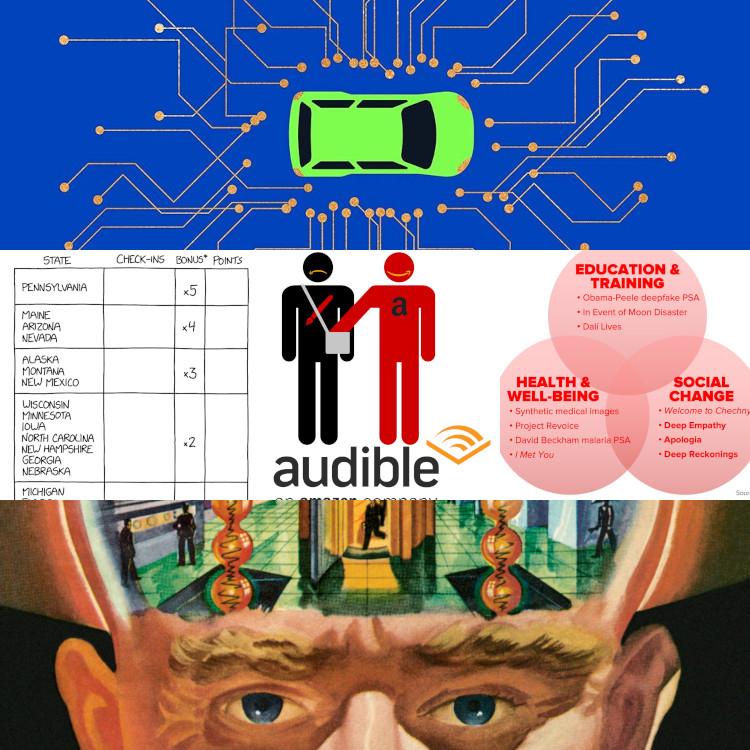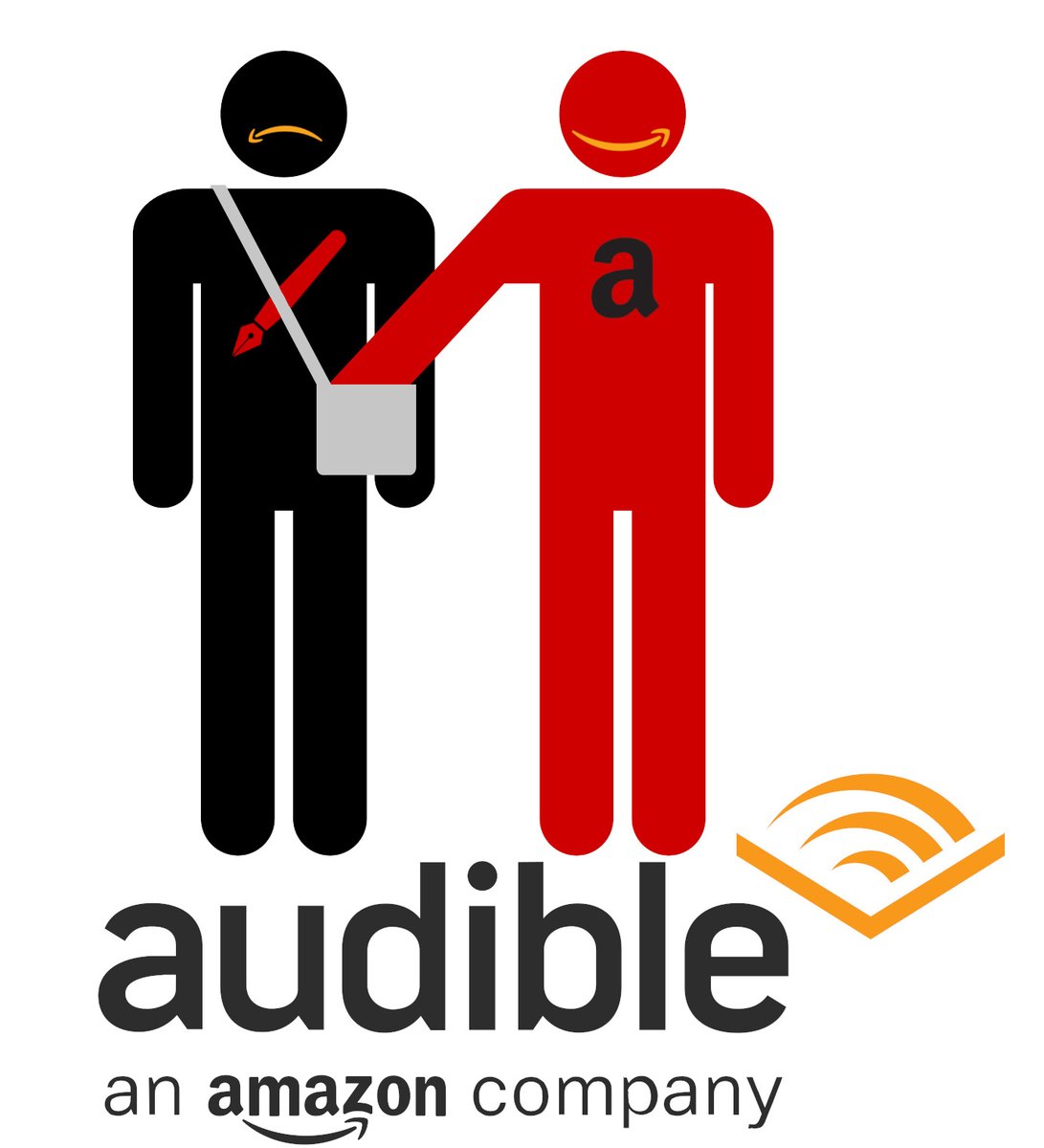
Today, @thedailybeast published "The Justice Department Finally—Finally!—Takes on Google and the Danger of Monopolies," my op-ed on tech antitrust and its connection to the digital rights movement.
thedailybeast.com/the-justice-de…
1/
thedailybeast.com/the-justice-de…
1/

I'm in my 19th year as a digital rights activist, and while there's a vogue of accusing the movement of being blind to the possibilities of techo-dystopia, that's a revisionist history. You don't devote your life to the cause if you think it's automatically going to be great.
2/
2/
But there was a blind-spot: the assumption that antitrust action would maintain the dynamism, opportunity and variety of the early commercial internet, keeping it from devolving into 5 giant websites filled with screenshots of text from the other 4.
3/
https://twitter.com/tveastman/status/1069674780826071040
3/
There was good reason for that assumption, of course. If you got online in the 1980s, then your modem connected to phone lines operated by post-AT&T-breakup "Baby Bells."
4/
4/
The reason your PC ran DOS is that IBM was so traumatized by a 12-year antitrust investigation that it allowed Microsoft to make its OS, rather than risking more enforcement through vertical integration.
5/
5/
And the PC clones from dozens of new upstarts were only possible because IBM didn't pursue the then-tiny company Phoenix for cloning its ROMs, again, out of fear of a rerun of its antitrust trauma.
eff.org/deeplinks/2019…
6/
eff.org/deeplinks/2019…
6/
When Microsoft came to dominate 95% of the desktop, the DoJ stepped in again to punish it, and if they failed in their breakup bid, at least they cowed the Beast of Redmond so that it stopped killing startups the way it had with Netscape, allowing Google to rise.
7/
7/
What we didn't understand was that Ronald Reagan had gutshot US antitrust enforcement and these were its last gasps, as it bled out over two decades.
We didn't understand how thoroughly Reagan's court sorcerer, Robert Bork, had transformed the consensus on monopolies.
8/
We didn't understand how thoroughly Reagan's court sorcerer, Robert Bork, had transformed the consensus on monopolies.
8/
We didn't understand that every president that came after Reagan, right up to today, would continue to encourage monopolization under cover of the doctrine of Robert Bork, creating a world where every industry has collapsed into oligarchy.
9/
9/
* Five publishers
* Four studios
* Three labels
* Two brewers
* One eyewear company
and falling.
10/
* Four studios
* Three labels
* Two brewers
* One eyewear company
and falling.
10/
Which is why the federal Google antitrust action is exciting - not merely because the complaint threads the impossible narrow eye of Robert Bork's needle for anti-monopoly enforcement...
11/
11/
But because it made so many people recognize that getting Google for search dominance is like getting Capone on tax-evasion. The pretense that monopolies are good, actually, is wearing so thin that even its beneficiaries are doubting it.
12/
12/
One area that interests me with my digital-rights-activist hat on is how monopoly changed the fortunes of tech workers. Back when there was competition in the industry, tech workers had a stake in unfettered tech industry growth.
13/
13/
But monopolization created the investors' "kill zone": the areas adjacent to Big Tech's walled gardens that no one will invest in, recognizing that Big Tech can simply obliterate any competitor in these areas.
14/
14/
That leaves Big Tech to enjoy double-digit year-on-year growth without having to endure what Peter Thiel calls "inefficient" competition. It also means that tech workers don't realistically dream of doing to Google what Google did to Yahoo.
15/
15/
The best they can hope for is to do a fake "startup" that's actually aimed at "acqui-hire" - an acquisition for the sole purpose of hiring a team that has proven it can field a product. The startup's product is flushed, and the VCs get a commission in the form of a buyout.
16/
16/
Instead of building an empire or "making a dent in the universe," tech workers are promised a well-funded retirement, mini-kitchen kombucha on tap, and free massages on Wednesdays.
17/
17/
The path into the tech industry generally starts with the heady rush of empowerment that comes from writing code and using networks to share it, and to find communities of likeminded people. The rush of self-determination and agency.
18/
18/
But monopolists thrive by moving risk off their balance sheets and onto those of their suppliers, users and customers - by confiscating and hoarding agency and self-determination.
19/
19/
Techies who fell in love with the experience of technological agency now spend every hour God sends taking it away from others. I think that this - along with other fracture lines - is behind so many of the moral reckonings we're seeing from tech workers.
20/
20/
Tech Solidarity, Tech Won't Build It, No Tech For ICE, the googler walkout, etc - techies are confronting their role in technological dystopia, and they are flexing their muscle. It's a gorgeous thing to behold.
21/
21/
My latest novel, ATTACK SURFACE, is a Little Brother sequel for those techies - a story of moral reckoning with complicity in technological oppression. It came out a couple weeks ago, and I've heard from a lot of tech workers with whom it resonated.
craphound.com/category/attac…
22/
craphound.com/category/attac…
22/
So many activists, security researchers, human rights cyberlawyers and ethical hackers tell me that their careers started when they read the first two Little Brother novels. Today, it feels like they're finally getting the reinforcements they need.
eof/
eof/
• • •
Missing some Tweet in this thread? You can try to
force a refresh








